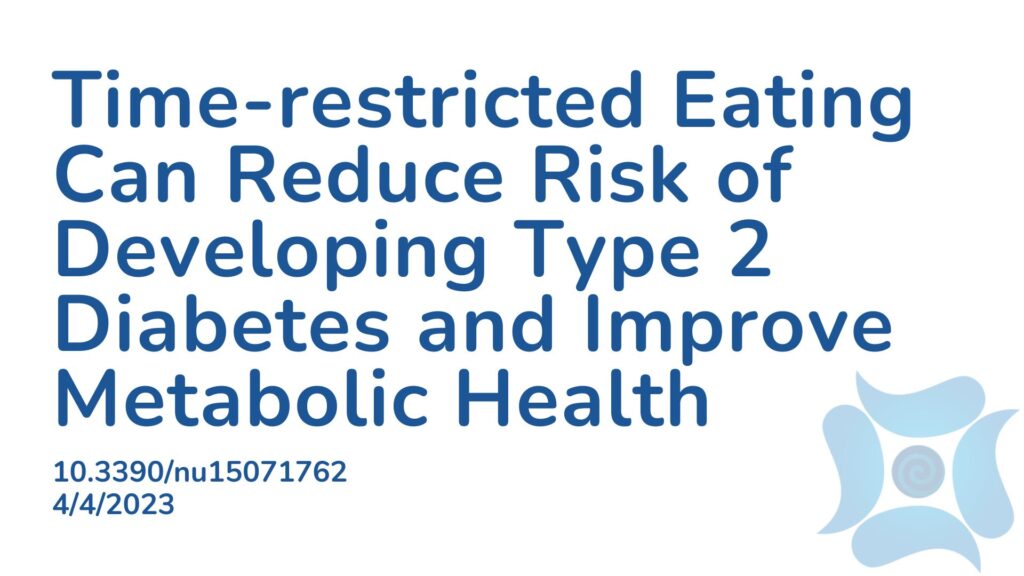Summary:
Diabetes is a disease that involves multiple systems of the body and results from insulin resistance (type 2 diabetes) and/or deficiencies in insulin secretion (type 1 diabetes). Type 1 diabetes is usually diagnosed during childhood, while type 2 diabetes (T2D) commonly develops in adulthood. T2D is the fourth leading cause of death worldwide and is closely linked with a poor diet and obesity. This review looks at whether time-restricted eating, also known as intermittent fasting, can reduce the chances of developing T2D and improve overall health outcomes. The dietary pattern assessed in this review was regular but fewer meals, and not eating for up to 14 hours overnight. The review showed that time-restricted eating can lower insulin and glucose levels, which has positive impacts on insulin resistance and glycemic control. Time-restricted eating also reduced calorie intake which positively impacts weight control, as well as regulated specific hormones responsible for regulating appetite. In conclusion, time-restricted eating improved metabolic health, which can help prevent or delay the onset of T2D.
Abstract:
Type 2 diabetes (T2D) is a chronic condition that occurs in insulin-resistant people with reduced glucose uptake. It is contributed to and exacerbated by a poor diet that results in accumulation of adipose tissue, high blood sugar, and other metabolic issues. Because humans have undergone food scarcity throughout history, our species has adapted a fat reserve genotype. This adaptation is no longer beneficial, as eating at a higher frequency than that of our ancestors has had a significant effect on T2D development. Eating at high frequencies disrupts the circadian clock, the circadian rhythm, and the composition of the gut microbiome, as well as hormone secretion and sensitivity. The current literature suggests an improved diet requires meal consistency, avoiding late-night eating, low meal frequency, and fasting to increase metabolic health. In addition, fasting as a treatment for T2D must be used correctly for beneficial results. Early time-restricted eating (TRE) provides many benefits such as improving insulin resistance, cognitive function, and glycemic control. Alternate-day fasting (ADF), 5:2 fasting, and long-term fasting all have benefits; however, they may be less advantageous than early TRE. Therefore, eating pattern adjustments can be used to reduce T2D if used correctly.
Article Publication Date: 4/4/2023
DOI: 10.3390/nu15071762



